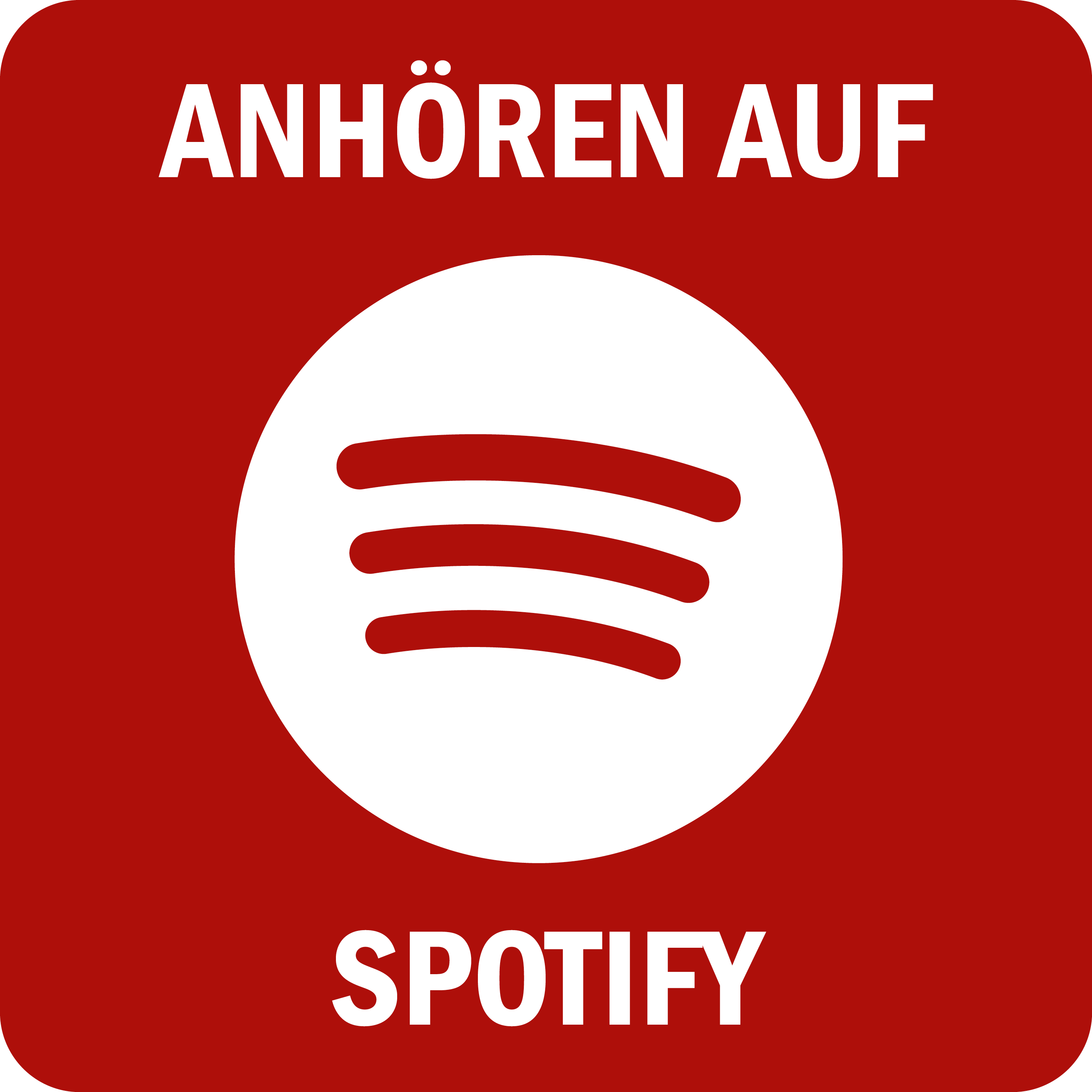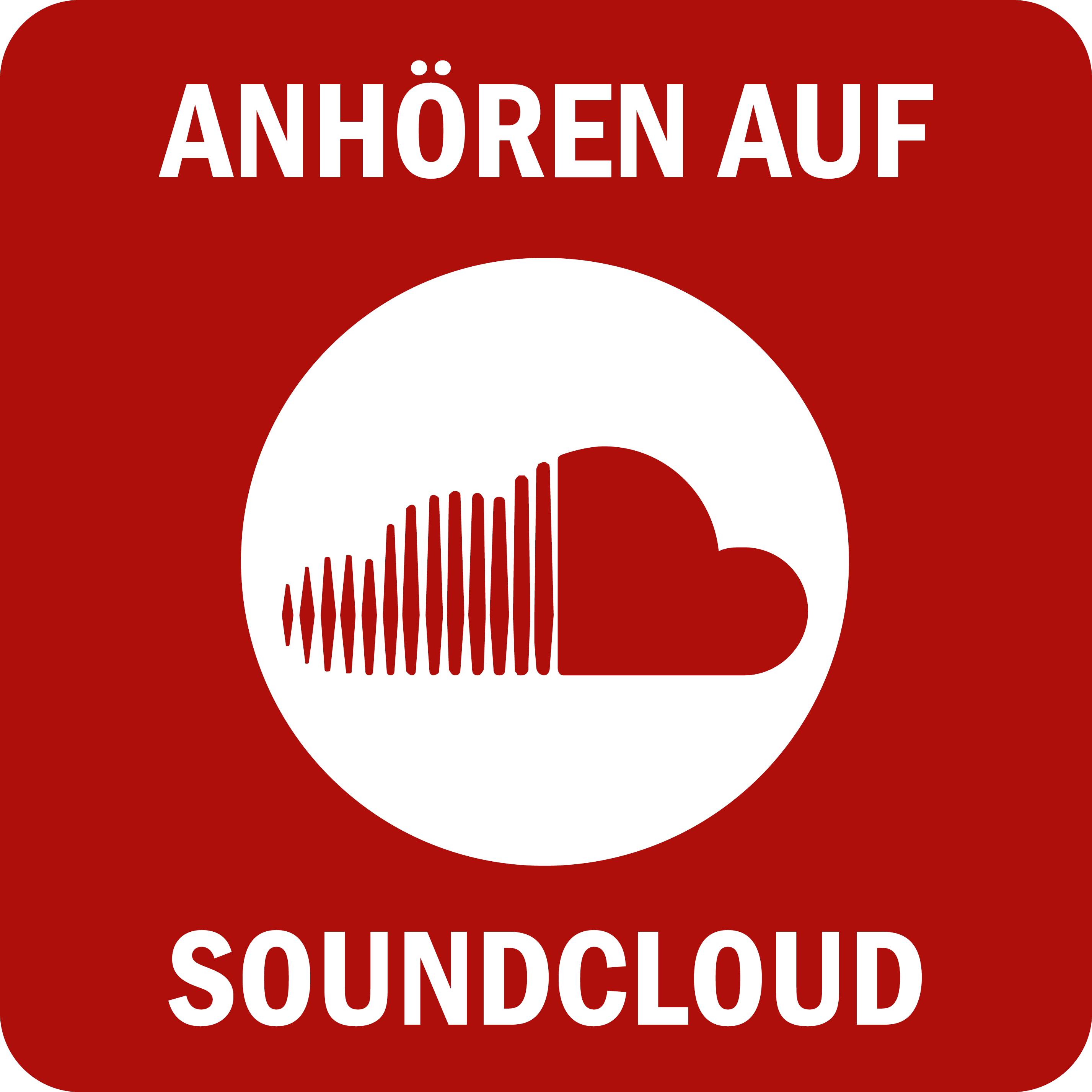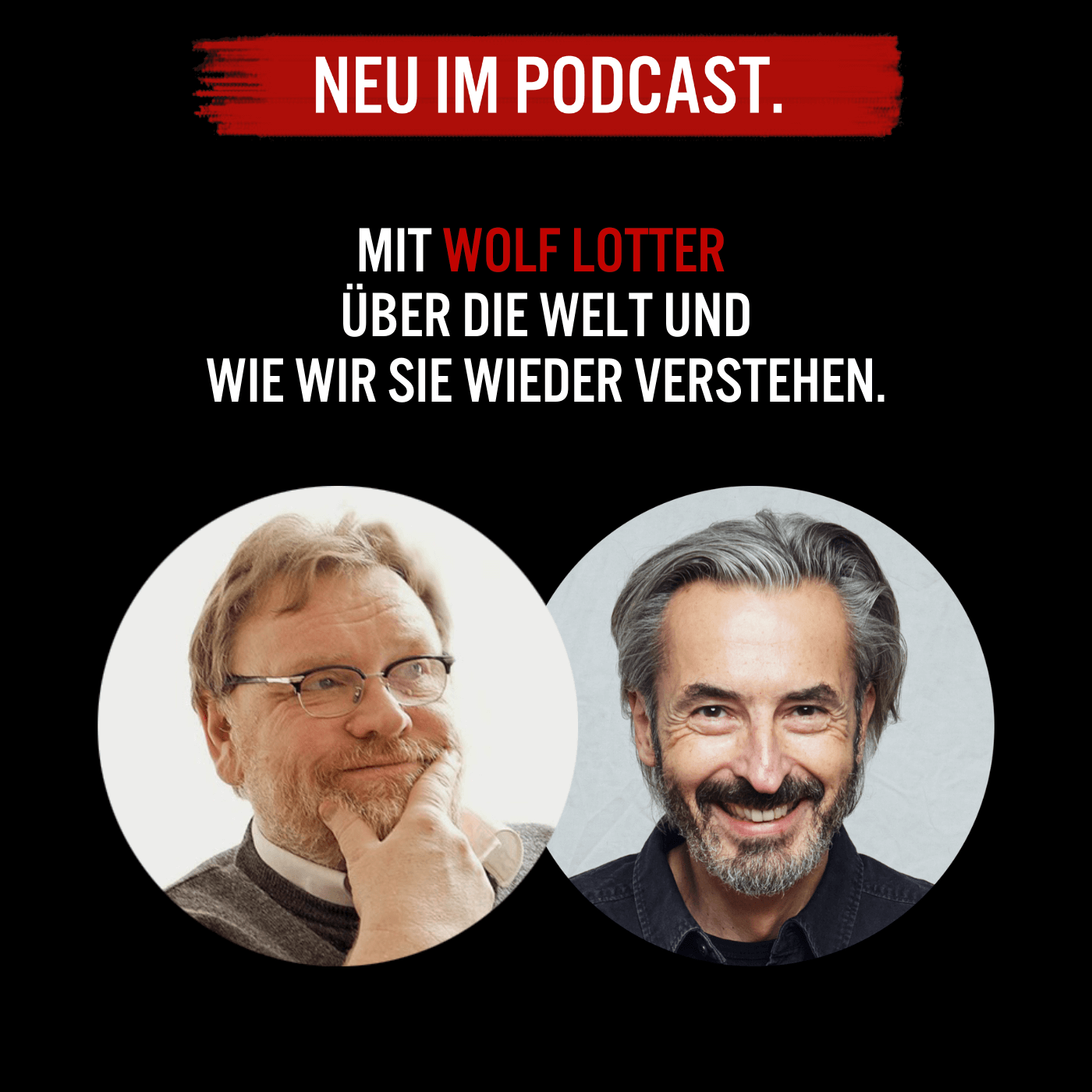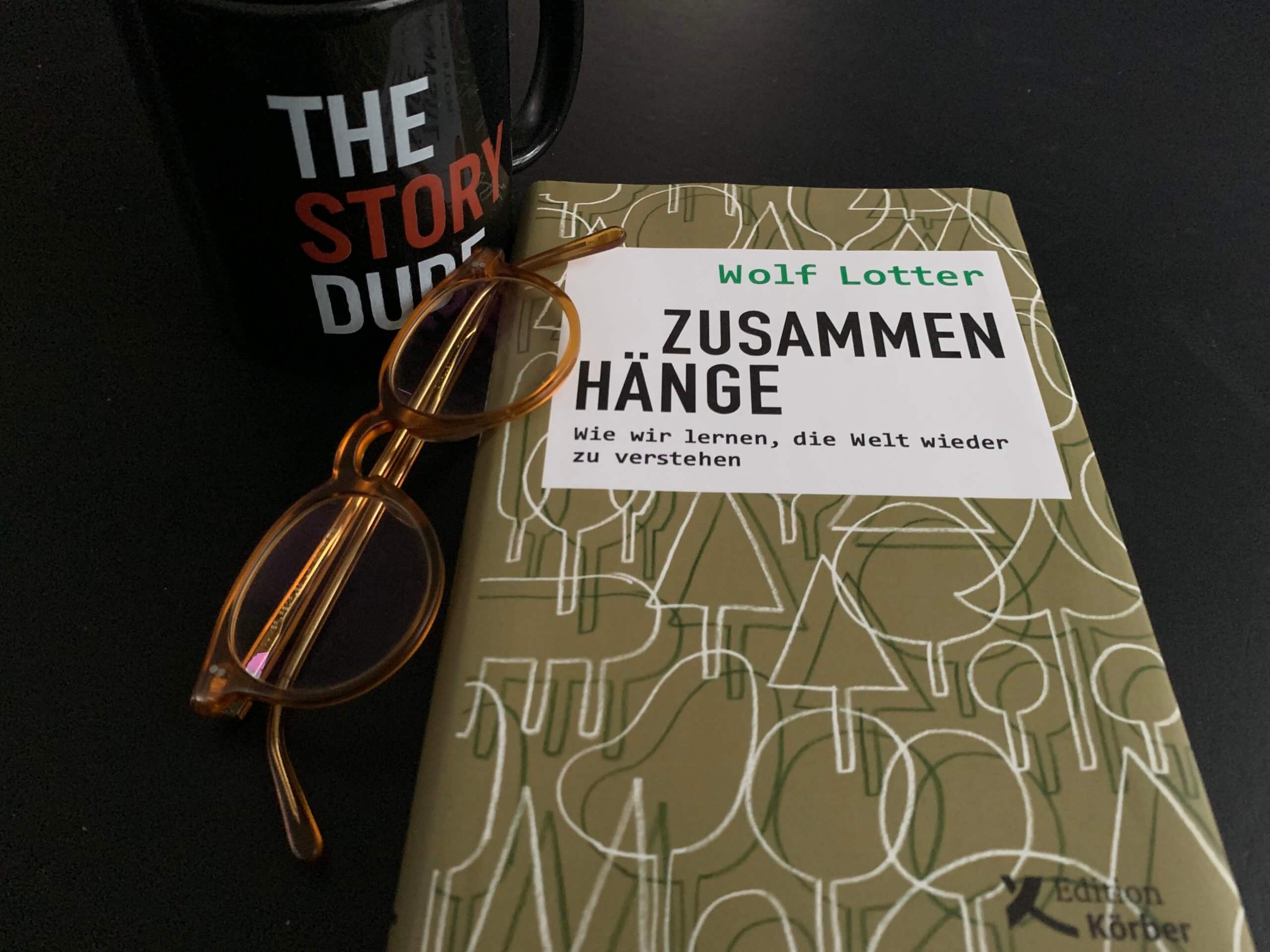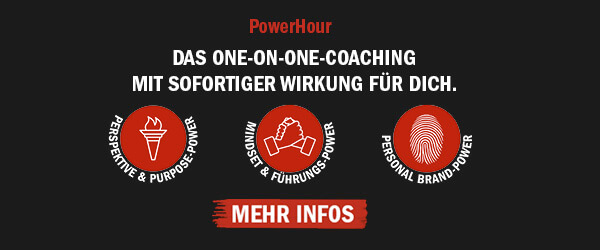You are standing on the beach. Sun on your face, wind in your hair. The air tastes of salt. Yes, it tastes good to you. Yes, it does, because that's what life tastes like, and that 's exactly how it must feel, because in front of you is the wind-blown sea. Curled foamy hair over a sparkling shawl. That's what's in store for him, the sea in front of you, that's what's in store for you. Oh yes!
Yes, so much hope for ... What does hope mean? You are sure, but you are sure of this: she is out there, one hundred percent, on her way to you personally. She was looking for you, the perfect wave.
All right, then! Up you go! Yesssss... That's what life feels like, and that's exactly how it has to taste, exactly how it has to taste.
At some point, every one of us is there or is just about to be there: a plan in our heart, a wish in our head, a goal in front of our eyes. Hope, yes ... tomorrow it can succeed, something can come true, it can work out, finally. Yes, it will. That will be something. It will be good. But how!
TOO LAZY TO READ ON? THEN LISTEN TO ME:
In the blogcast, I read this recent blog article to you. With emphasis, of course!
Grabbed happiness by the hair and the bull by the horns, grabbed your heart, grabbed your heart. Here. Today. Now. Hic Rhodus, hic salta. Now it's your turn!
My 10,000 hours are done, Malcolm Gladwell, hold my beer.
Flawuschschschuhh... Then it's quiet.
Suddenly, time stands still.
Does your heart hold its breath.
Because it is, yes: off. That's how it is. Out.
Here. Today. Now.
You are not the first to experience this. You are not the first to drown in the perfect wave. Sitting on the wrong horse, in the wrong film, in the wrong place at the wrong time, in the ink thus. Just had what is called a stroke of bad luck. A victim of circumstances, of constraints, of the system.
Fate? Accident? That happens too, happens to many, happens all the time - here, today, now. Everywhere.
Nevertheless.
Still your question. Why? Why always me? Why always me? Find your why-ever-me?, or what? What's up, Simon Sinek? Read your own fucking books!
How often do you pick something like that from the buffet of questions and chew on it until it gets bigger and bigger and bigger and can no longer be swallowed, no longer fits in your mouth, and then your mouth opens and you spit it out? Why always me?!?
When your train is late now, of all times, and the only one of all times. When, of all things, the other one gets the job, even though you're a lot ...? If you're already late and your shoelace breaks now of all times, if the server - the shitty server - crashes today of all times, of all times before the presentation, of all times at your place, when everything ... and no one else ...?
Can anything just work for a change?
Can't Corona be?
Why always me? Why always you? And why never Müller's cow?
What's going wrong?
One thing for sure: the question. It is wrong, not a question. When we confuse causality with coincidence, we make false connections, shift our perspective in the wrong direction and set our focus just as precisely wrong. The focus then lies where it does not belong: in the past, on the circumstances that always turn against us of all people. That burns something into us, and that is: wrong.
In any case, it cannot be changed, even if we can never understand the world, no matter how rumplestiltskin-stomping. Not wanting to understand anything at all, not any more. No, not by any stretch of the imagination. Oh how bad that no one knows!
Yes, I know: it's not easy to understand the world, because the forest of connections hangs so thickly before our eyes that thicket seems to be the only right word for it. Because everything is complicated.
It is not.
How complicated is it?
In truth, life is complex, just as we humans are. Life only becomes complicated when we no longer understand it. And then everything we see is red. Then we see red, are afraid and have only two options: hide from the complex or hate it and destroy it.
We didn't. Not only.
We can also dissolve the complex, understand it and use it to grow further. From the inside out, just as everything grows, we too can grow. Sometimes it hurts, sometimes it hurts a lot: growing pains.
Stories help us understand life, the good stories, new stories, old stories, very old stories. Stories are complex, just as we humans are. The story of Ulysses, for example, the king: ten years of cunning in war with and for his friend, ten years of wandering then, on his way home, and finally at home his kingdom is no longer his kingdom, but he, Ulysses never says that, in his whole Odyssey, he never asks that: "Why always me?!!?" Instead he does something, not always the right thing, but he tackles the next thing; he thinks, resolves something, undertakes something.
We can always do that.
Understanding again.
"Complicated is what we don't understand," says the publicist Wolf Lotter, and "everything we don't understand and therefore can't explain. And that's my point. In reality, I want us to start not shutting out complexity, not always just reducing it and saying: Instead, we should be happy that we live in a world in which it is possible to use diversity at all and to understand it as a resource of a new economy, which we have actually already been in for a long time. And to accept that it's about tapping into complexity and having a joy in the fact that there is so much in this world."
Wolf Lotter says this and a lot of other clever things in the current episode of my podcast, to which I cordially invite you. You'll enjoy this good hour, and I'm damn sure you'll also enjoy his book "Interconnections: How we can learn to understand the world again "* and help you, yes: understand the world again. My copy has a lot of (L)dog-ears, which I always fold into books where something seems particularly worth writing behind my ears, and Wolf Lotter has written something like that into "Zusammenhänge" on almost every page. Thank you very much!
Are you all right?
Whatever we do, whatever we want - with our inner story we lay the foundation for it, our values are the bricks, and the contexts are the glue that binds and holds everything together. We then stand on it and find our perspective in the complex world and can orient ourselves. We ourselves, we in our jobs, we and our companies, our brand, we as leaders, in the team and in general. Then we know our way around, again.
In our time, which for most of us is more and more a "what-are-these-just-times?"-time, an "oh-god-now-it's-not-yet!"-time and a "why-am-I-of-all-people?"-time, many of us lack the right perspective. Orientation is the scarce commodity par excellence.
I experience this first-hand in my coaching work. Because significantly more than 99.9 percent of all tasks have to do with perspective, mindset and leadership. I am asked these questions by CEOs of international corporations as well as founders, team leaders and people like you and me who want to find their way in these confusing times and often cannot find the perspective.
Can you get support with this? Absolutely!
This is exactly why I created the PowerHour offer and have already been able to accompany a whole series of positive impulses and realignments. Among other things, this has brought such tangible results into the world as the saving of thousands of euros, or a new understanding of one's own role in the team, or entire business models. So together we are writing the next chapter of the inner story. Our inner story, that is the important, the effective, our true story. We tell it to ourselves, we use it to create our perspective and answer questions like: Does hope die last or live first?
If you feel like you could use something like this, you'll find everything you're looking for here.
Above all, together with me you will find your perspective, your orientation and rediscover your inner story. Because you can recognise, learn and apply at any time, and our inner story gives us the power to do so - as people, as teams and as a society.
Plan B from the resilience professional.
Hardly anyone knows better than Gregor Demblin that life can change from one beautiful second to the next. 25 years ago, he took a refreshing plunge into the cool sea on his school-leaving trip. From a Greek beach. Sun on his face, wind in his hair. Air and life tasted good, like the future and the salt of life. In front of him - well: the wind-freshened sea. Let's go in.
Flawuschschschuhh... Then it was quiet.
Gregor was pulled out of the sea alive at the last second and has been in a wheelchair ever since.
Yes, so much hope for ... What does hope mean?
"Why me of all people?" is a question Gregor often asked himself. He hasn't done that for a long time. Rather, he has learned to love Plan B. He has turned Plan B into his Plan A and himself as well. He then brought something into the world that you have to marvel at with your mouth open, because there is no other way. Because it is simply magnificent. More than that!
Gregor Demblin visited me in the good podcast room. You can listen to what he told me here. If you haven't already done so - yes, they say there's such a thing - you'd better subscribe to "No Story. No Glory. - The Podcast" in your favourite player, then you won't miss anything in the future.
Write and share a new story.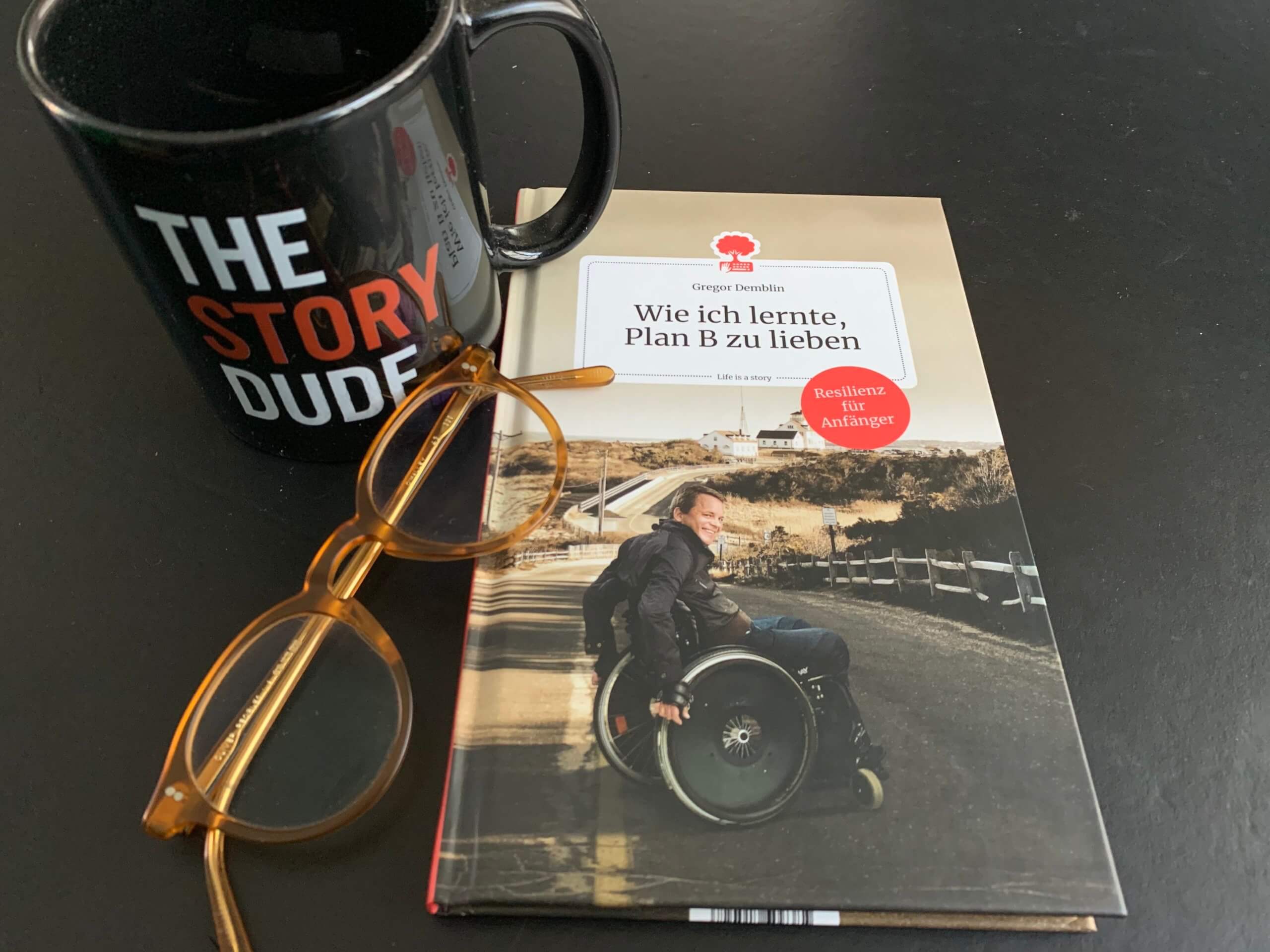
You can read Gregor's book for an introductory transition. It is naturally not titled "Why always me?" but "How I learned to love Plan B." and offers all kinds of resilience impulses for beginners. Gregor records in this collection of touching stories how he managed to turn absolutely desperate bitterness into a new perspective and, I understood, his perspective. One that is good for him, and good for many, many others, because it is from this perspective that he has brought himself back to life, a better life, and a more than impressive enterprise into the world. One that is good and good for something. For quite a lot, actually - but read for yourself.
People like Gregor Demblin are needed. People who write their own stories, write a new one when they need to because the old one no longer exists, and share their stories. These are the innovators, of whom there cannot be enough. Especially in our time, especially in our "what-are-these-just-times?" times, when the not-so-perfect wave also becomes the second wave.
Especially here in Vienna in these days when it has become even a bit darker, although the second lockdown has already been pushed between us and the silver lining on the horizon anyway.
Especially now, even if many other thoughts are within reach, what Martin Luther King Jr. said applies: "Darkness cannot drive out darkness. Only light can do that. Hate cannot drive out hate. Only love can do that."
Every person, every company, every one of us can set this or that tone with what we do and create this or that resonance. Like-minded and like-minded people come into common vibration - and from this something like a new story could emerge, a New Story. This new story is about all of us, just like the old one, but it has a new perspective: it is a story of connectedness.
I think this was the story my grandmother, old Story Dudette, was referring to, and she meant it when she sighed wistfully, looking out to sea, "No Story. No Glory."
The link to Amazon is intended as a service for snooping around and for when you want to feed your Kindle right away. Every bookseller is happy about a purchase and will get you any book in no time.


